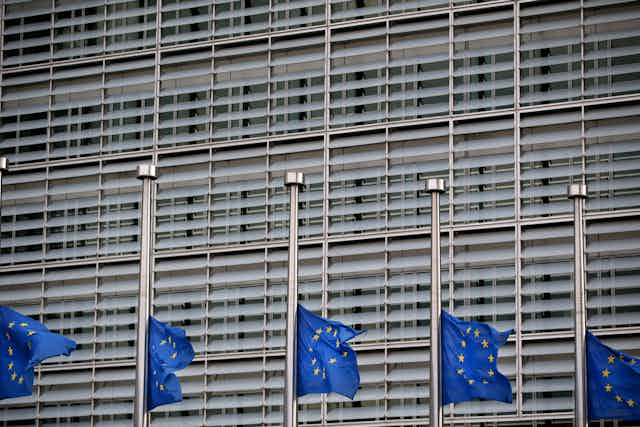Within minutes of the first reports of terrorist attacks in Brussels, a number of Brexit supporters and campaigners were linking the incident with the need for the UK to leave the European Union.
British tabloids, such as The Sun and the Daily Mail, used a similar rhetoric, claiming the attacks proved the UK would be safer outside of the EU. Other reports suggested the dynamics of the UK-EU referendum are likely to shift following the attacks.
But will the Brussels incidents really change the dynamics of the debate about Britain and the EU? They might constitute an opportunity to shape the campaign in the short run but their impact on the referendum should not be overestimated.
The referendum is, after all, still three months away. That might seem like a short period of time, but it is an eternity in politics. The official campaign has not started yet – nor have the official leave campaigners been selected. They won’t be announced until April 14.
On social media, the two favourites to become lead campaigners, Stronger In and Vote Leave, did not mention security or migration concerns following the Brussels attacks. The loudest noises seemed to be coming from Leave.EU – a group unlikely to be selected for an official role in the campaign.
It’s important to remember that security is far from being the only theme that will shape the results of the EU referendum. While immigration remains predominant and can arguably be linked to security concerns, the economic argument is likely to play a decisive role in convincing undecided voters. Preliminary findings from our Welfare State Futures project show voters (including some undecided ones) would like to know more about the financial aspect of EU membership, in particular.
These attacks can be deployed to serve either side of the campaign. For those wanting the UK to remain, they show how more co-operation between European states is the only way to fight terrorism. The pro-European side can argue that co-operation taking place at the EU level is the most efficient way to tackle this issue.
For the leave campaign, the fight against terrorism is better served outside of the European Union. Only then can borders be sufficiently strengthened to protect the country against potentially killers.
In contrast to what was written the day after the terror, it seems unlikely that the Brussels attacks will have a lasting impact on the referendum. And it should not be the main focus of the campaign.
Many undecided voters want remain and leave campaigners to bring them key facts about the European Union as a whole, and what staying in or leaving would mean for voters and more generally the British population.
Security is only one aspect of the debate, but other major elements, such as budgetary issues, trade, transparency and democracy need to be addressed further by campaigners in order to provide British voters with answers to some of the most important questions.

